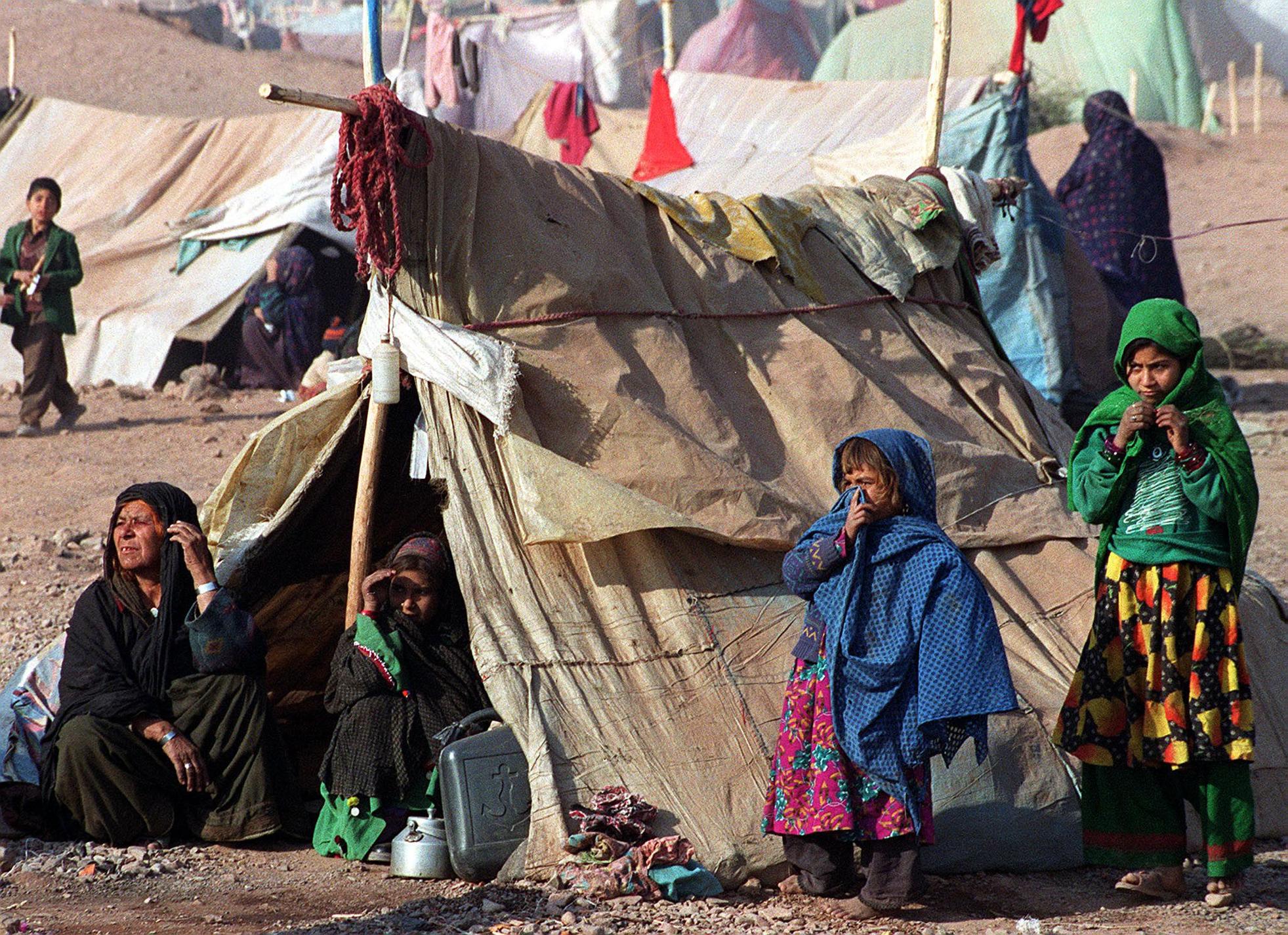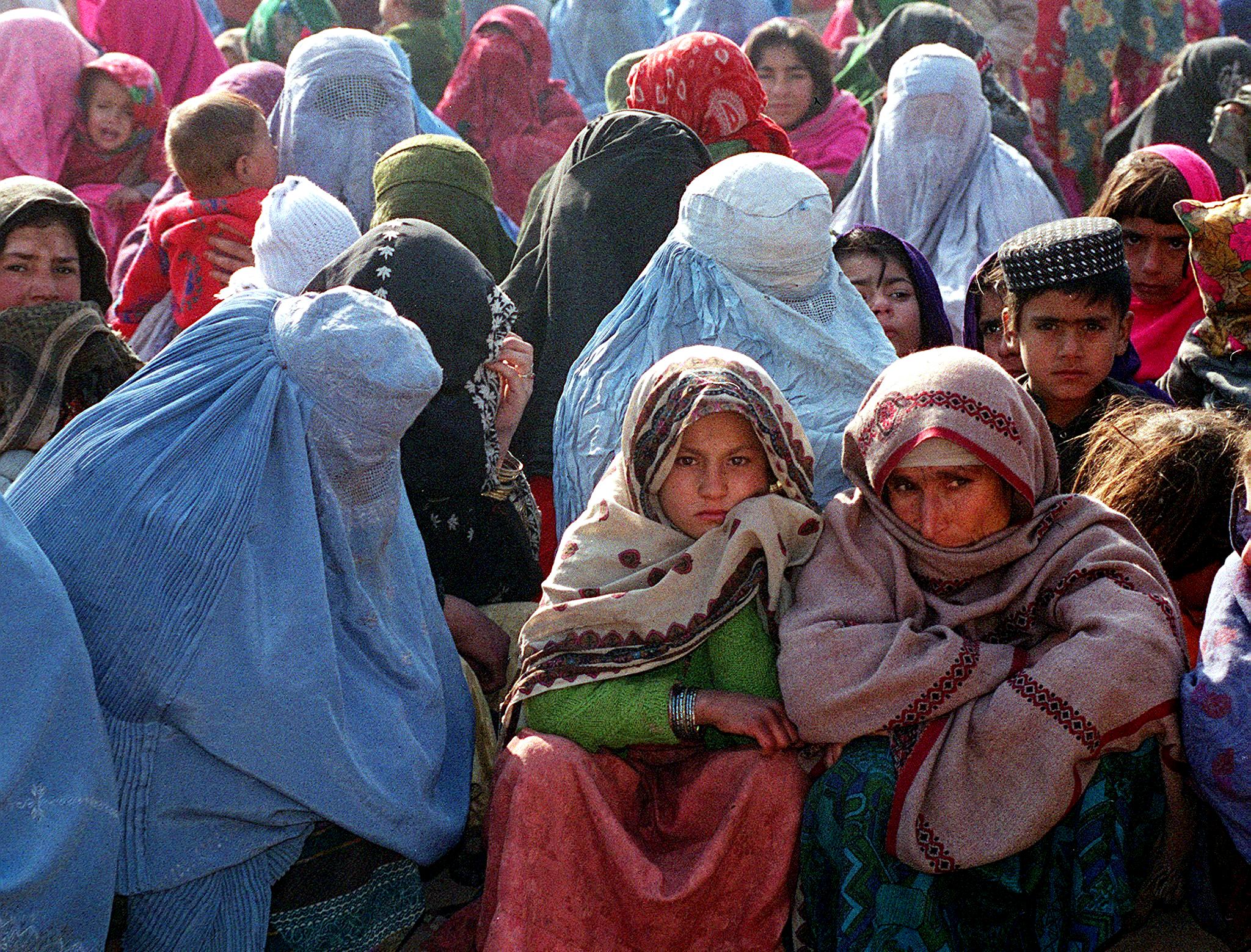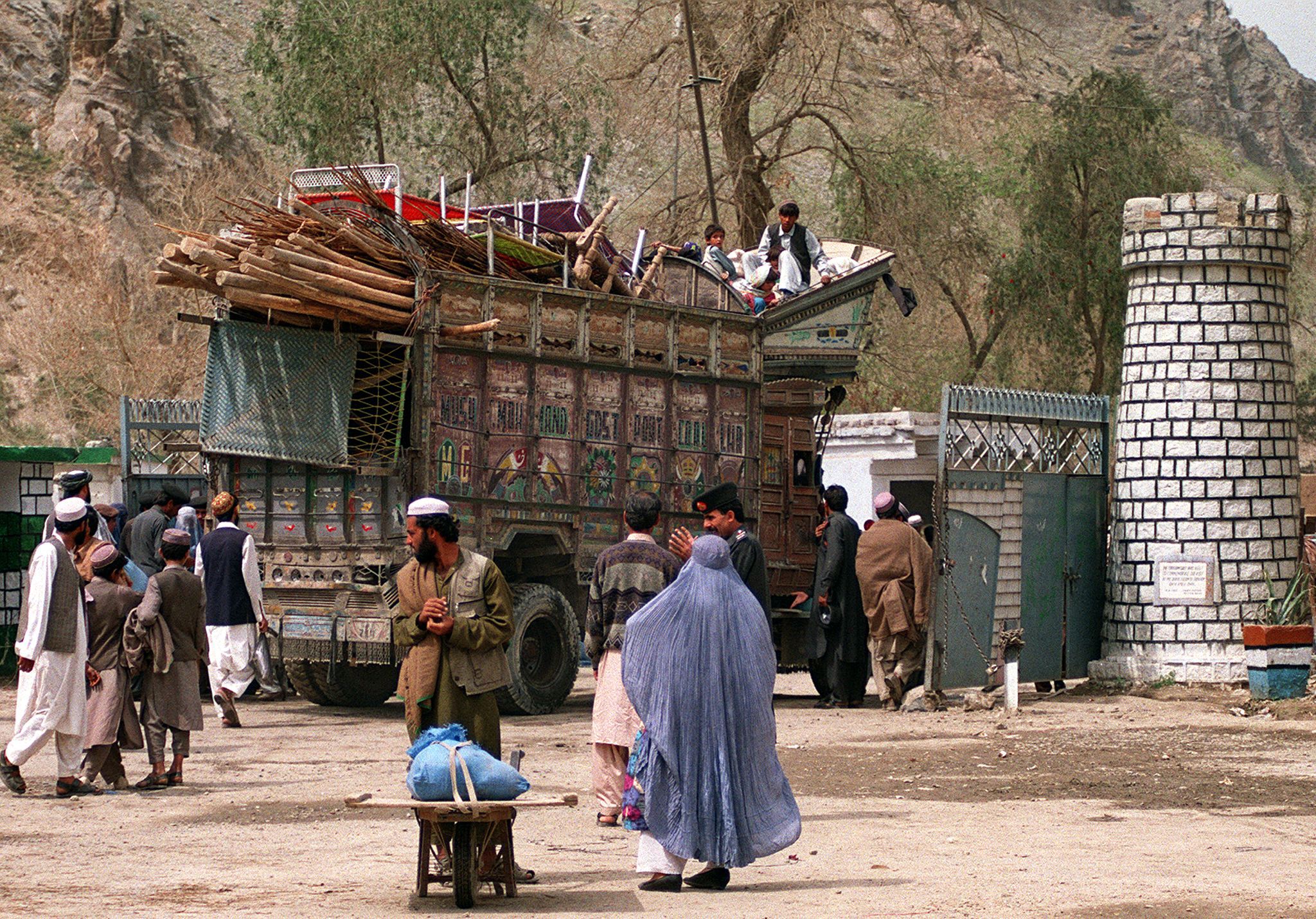Among the Afghan refugees in Mardan, northwest Pakistan
April 2000: Robert Fisk visits a refugee camp in Pakistan and speaks to those who managed to escape the Taliban


Their camps are little Afghanistans, streets of mud and wattle huts, a wooden gate padlocked on to dry earth, a flurry of goats, wooden roofs overhanging earthen walls, a dust road and women who scurry into darkened rooms at the sight of a stranger. In the schools, the girls are taught, “Yak, du, se, char, panj, shash…”, chorusing the Farsi numerals from beneath a tent.
The United Nations would like them all to go home, all 1.2 million of them in Pakistan. In the UN compound in Peshawar – with its carefully laid out gardens and air conditioning – they run a “repatriation” programme to send the Afghans “home”. Travel to Jalalabad or Kabul and you’ll be given rupees, a blanket, food. But why do you need a “programme” if all is well in Afghanistan? It’s not, of course, as the UN well knows. If the Taliban have provided security, they have created a state without a government, a theocracy without a nation. So is it any “surprise that all these miniature Afghanistans have blossomed along the border with Pakistan?
I walk into Mir Abdul Saeed’s home. Three of his brothers were killed in the war. Sergeant Mir Abdul Waser was a 26-year-old married soldier. Saeed Ahmed Shah was a 21-year-old army medical officer. Both were torn apart by rockets. Saeed Habib was a 20-year-old, killed on convoy escort duty in Pakman by the mujahideen. Mir Abdul Saeed’s cousin, Saed Ahmed, was killed, too, with his aunt’s brother, 45-year-old Wali Mohamed. “I blame the selfishness of the various groups of people who want to rule,” the old man says. “They only think about their interests and not those of the people.”
Where was the last place I heard this? In Kosovo? In the Palestinian camps of Lebanon? In the Sahrawi camps of southwest Algeria?
And old? Did I write “old” in my notebook? Mir Abdul Saeed was an engineer in Kabul, an educated man of good family who travelled pre-war in India, Iran, Russia and Poland. Now he looks as if he is approaching 65, even 70. He is 46. If Shangri-La is the place of eternal youth, the refugee camp outside Mardan is a land of eternal age. Lines and hanging flesh mark the faces of the young. And they live in fear – of theft, of kidnapping, of overnight shooting. If the Taliban have imposed law – of a kind – in Afghanistan, there is still anarchy here.
Back home in Afghanistan, we had one small room for our entire family while here I have two rooms just for my husband and seven children. I’d love to study but it’s finished with me
And the desolation of half a society. The women talk to us with a kind of resignation. There is the 18-year-old whose mother wishes her to complete her education beyond grade eight but whose fiancé’s parents – in Saudi Arabia – insist that her education must finish early. There are the 15-year-old twin girls who studied to grade six but can only continue their education outside the camp. But the only transport outside is a four-wheel-drive that carries men only. They cannot leave. The camp is a prison without wire.
Every earthen hut could fill a reporter’s notebook. A family from Peshajee who speak a village dialect, farmers, nomads, an old lady, an old man, two sons with wives, one with six children, the other with five. No doctors, no access to a health clinic. An attempt by aid workers to talk to the women about childbirth, the avoidance of close pregnancies, was treated with scorn. A girl says to us: “I will bear as many children as God gives me – the land will take the weight of the child and God will provide.”
Rahmina is 30 but looks 50, a beautiful woman with lively eyes, a sense of humour, a miraculous lack of complaints about life. She has never been to school, she cannot read or write and she cares for her seven children in a two-room hut. “Life is easier in our camp,” she says. “Back home in Afghanistan, we had one small room for our entire family while here I have two rooms just for my husband and seven children. I’d love to study but it’s finished with me. My husband wouldn’t let me.”


Three female schoolteachers express their pain. They come from the cities of Afghanistan – the educated city dwellers cannot believe they live in mud huts rather than brick houses, beside illiterate farmers. The women’s university in Peshawar has been closed down (a big thank you here to the Taliban) but the schoolteachers work on; Malika’s husband takes care of their three children – he has four from a previous marriage – while she attends the Pakistani university in the morning and teaches in the afternoon. At last, an Afghan man who sets an example. Others do not. Outside in the street, I am taking photographs when a man approaches holding a cricket bat. “It’s enough!” a woman warns me. “No more pictures.”
Around the camp are little pools of charity. The Bibi Mariam High School headmaster is Amanollah Nasrallah, who commutes to his home town of Jalalabad to teach two kindergarten classes when he is not in the camp with his 120 teachers and 3,000 pupils.
I listen by the tented classrooms. “One, two, three...” They learn the English numerals now. Then the Farsi, then one to 10 in Pashtu, dusty shafts of sunlight penetrating the dark tents as five-year-old girls read the Koran in high, screeching voices. They “are the people of a dead country”, seeking in the heat and dust a vague, computer-less future. In another square earthen room, I find a former employee of the Afghan ministry of technology whose home was destroyed by fighting between the Jamiat Islami and Hezbil Islami parties in Kabul. He is in his forties, looks closer to 78 or 79. “The Afghan government promised to give peace and food and money to the people but they couldn’t do it,” he says. “After the Najib regime was overthrown, the mujahideen promised us peace and security and food and they couldn’t do it. Now there is fighting between the Islamic groups. Yes I blame all – the Americans, the Russians, the British, especially Pakistan because they help the Taliban.”
Another Afghan refugee casts his own cynical gaze upon this tired, hopeless camp world. “We are no longer fashionable, we Afghans, and you don’t care about us anymore,” he says. “We have to deal with the Pakistanis. And with the UN. You know about the UN? They have what we call ‘hunting’ seasons – when they are in full cry. The UN hunting seasons are war, earthquakes and returning refugees. We are part of “the third UN hunting season. They want us to go back in one of their programmes. To what?”




Join our commenting forum
Join thought-provoking conversations, follow other Independent readers and see their replies
Comments